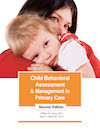Tune in to your child's individuality
Key Points (continued) :
Notice the times when things are going well. How are you reacting at the times when you and she are feeling good about each other? There are clues there about what the infant or child needs.
Recognize and accept the way the infant really is. If parenting is stressful and your infant doesn't act like the one next door, she may be 'spirited' and need specialized parenting techniques. You may need to learn more about how to parent a spirited child than the parent next door.
Recognize your feelings toward the child. It can be isolating to feel that you are frustrated rather than fulfilled as a parent, that you are stressed by parenting rather than energized by it and that you sometimes wish that your child were different. Lots of other parents have these feelings. Find a way to discuss these feelings honestly. It will probably benefit your child also, if you do.
Temperamental characteristics can be very positive in some situations and challenging in others. Only by sensitizing themselves to the infant's personality can parents learn how to respond to in a helpful way. Most parents learn this through a period of trial and error but when conflict continues to increase rather than resolve itself, or when it appears unexpectedly, assistance may be welcome.
For assistance in helping a child with specific issues related to temperament, see Kate's monthly free newsletter:
here.






